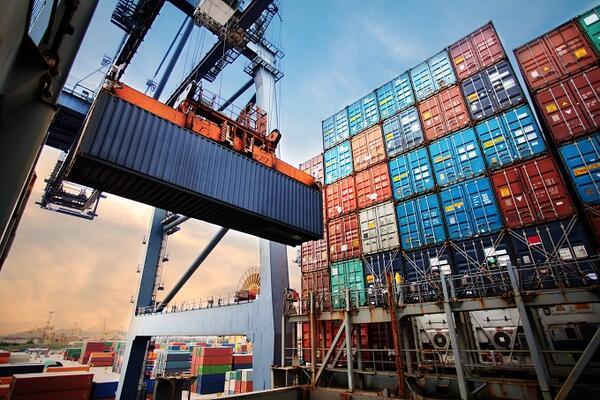
Nepal: Taking its commitments on the WTO Trade Facilitation Agreement a step further (en)
Participants representing the Nepalese government, business associations, as well as development partners gathered for the first virtual training on the 'WTO Trade Facilitation Agreement (TFA): principles, requirement and benefits', organized under the EU-Nepal Trade and Investment Programme (TIP), funded by the European Union (EU) and implemented by the International Trade Centre (ITC).
The training workshop, attended by 25 participants from governmental agencies and business associations, of which 24% were women, was conducted in a participatory approach. The participants stated that the content was highly informative, relevant and useful. They would welcome more trainings on related issues in the future so that Nepal could fully benefit from the TFA.
Mr. Durga Prasad Bhusal, the Programme's Focal Point and Under Secretary of the Ministry of Industry, Commerce and Supplies, described the EU project as timely, especially since trade facilitation has been a priority area of the government following its TFA ratification in January 2017.
He remarked that Nepal has finalized the notification of the Trade Facilitation Agreement commitments to the World Trade Organization (WTO) in February 2018. Nepal has notified 2.1% of its TFA commitments under Category A, having technical capacity to implement such measures within one year upon entry into force of the Agreement, which took place on 21 February 2017.
For the remaining measures, Nepal notified 12.2% and 85.7% implementation commitments under Category B and C respectively, committing to implement measures under Category B by December 2025 and Category C upon receipt of technical assistance and capacity-building support.
Mr. Bhusal confirmed that the Trade and Investment Programme will support the Government of Nepal in preparing the action plan for the implementation of Category C measures, and will provide institutional strengthening support to the Nepal National Facilitation Committee in the years ahead.
Ms. Eleonora Salluzzi, Associate Programme Officer at ITC and co-lead on the virtual training, shed light on the legal requirements enshrined in the Articles of the WTO TFA, and highlighted how implementing the Agreement can foster business competitiveness in international trade
'Trade facilitation reforms are of utmost importance for businesses, especially for small and medium-sized enterprises in least developed countries', she said. 'Operationalizing the Trade Facilitation Agreement is a path to greater internationalization, which will allow them to access global value chains at lower costs and at greater speed. Governmental agencies and businesses can equally benefit from the Agreement by having a sound understanding of how the new procedures and requirements will complement their public policy and business priorities', she concluded.
Mr. Qasim Chaudry, TFA expert at ITC and second co-lead on the training, explained how costs arising from cross-border inefficiencies are detrimental to the competitiveness of small businesses in international markets, and how specific measures in the Trade Facilitation Agreement can foster efficiency in the business environment to the benefit of government, businesses and other trade stakeholders alike.
'Trade facilitation is crucial to curb the time and cost of international trade procedures in Nepal,' he said. 'The Trade Facilitation Agreement provides a sound technical and institutional framework to implement trade facilitation measures that will greatly benefit a landlocked country such as Nepal.'
About the EU-Nepal Trade and Investment Programme
The EU-Nepal Trade and Investment Programme is a four-year programme funded by the European Union (EU), to assist the Government of Nepal to achieve sustainable and inclusive economic growth and poverty reduction by increasing trade and participation in regional and global value chains.
ITC is implementing the "EU-Nepal Trade-Related Assistance: Facilitating Increased Trade and Participation in Coffee and Pashmina Value Chains" project, which strengthens Nepal's economy, promotes inclusive growth and contributes to removing trade barriers. Trade facilitation, in particular, is one of the substantive areas of ITC's technical assistance in Nepal under this project.







